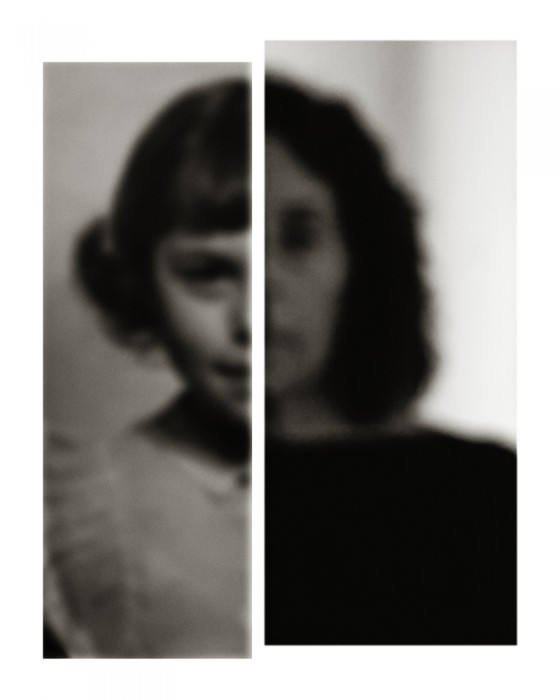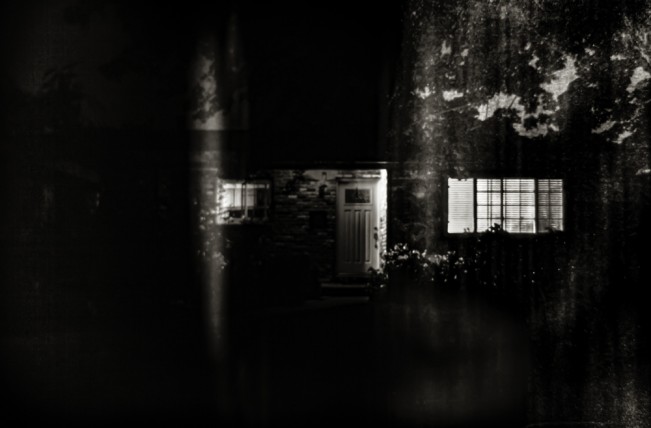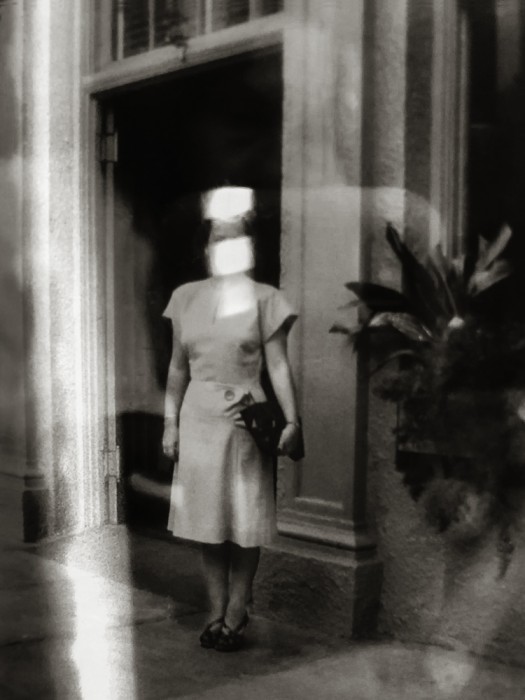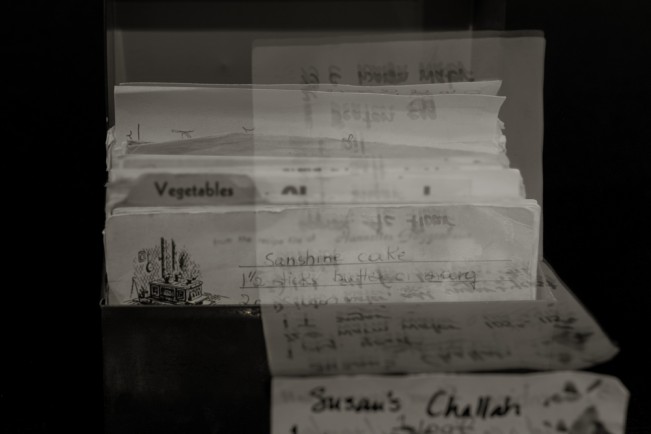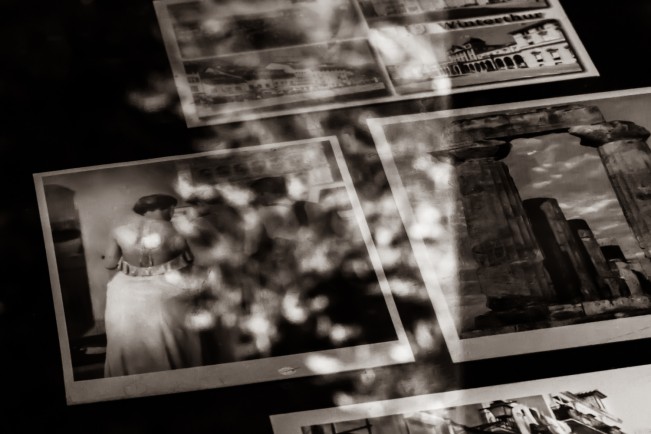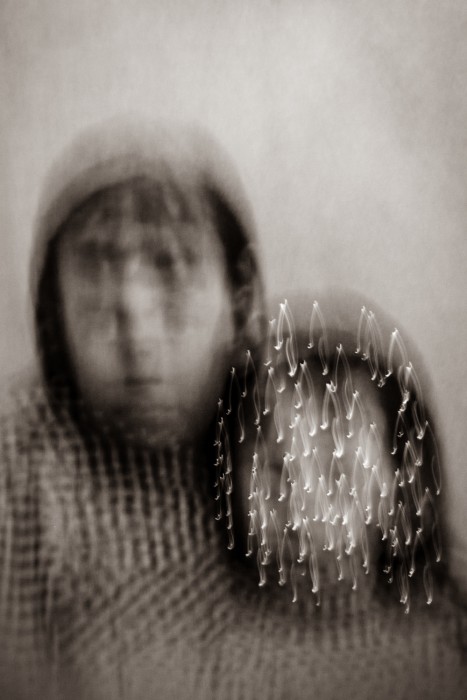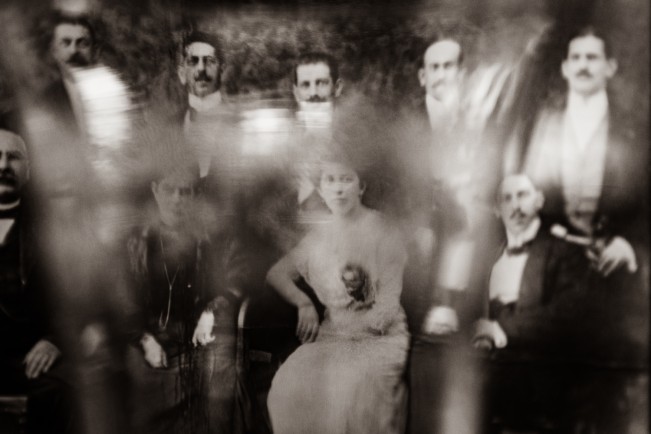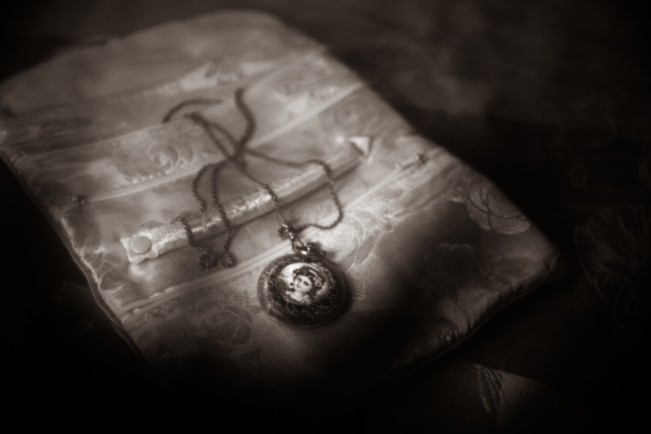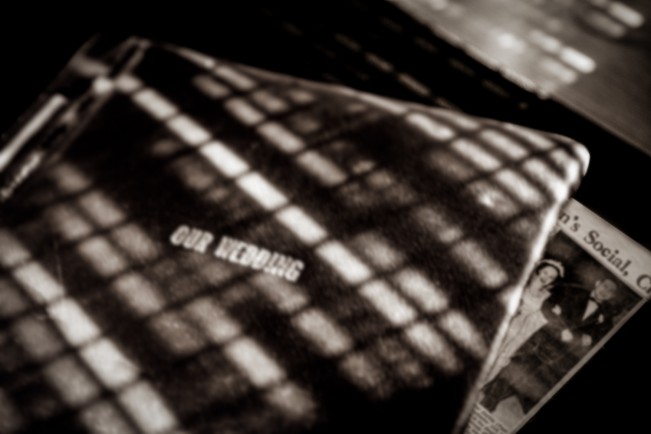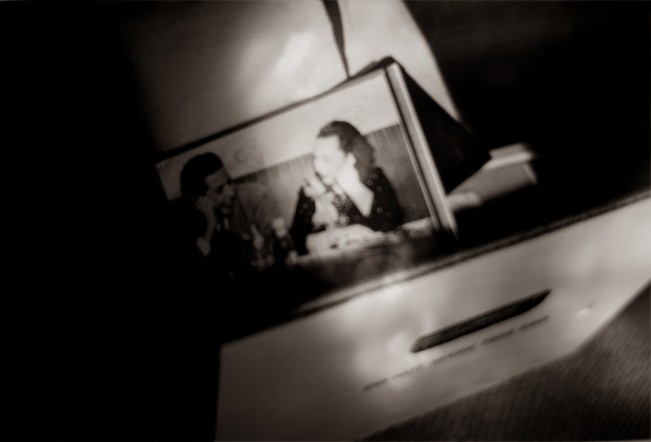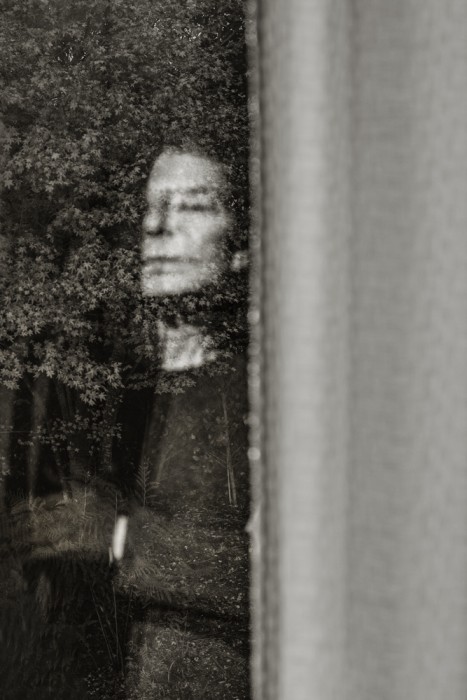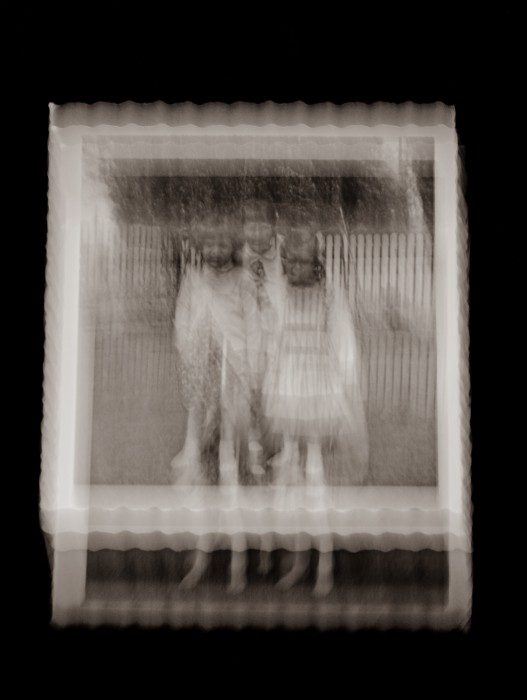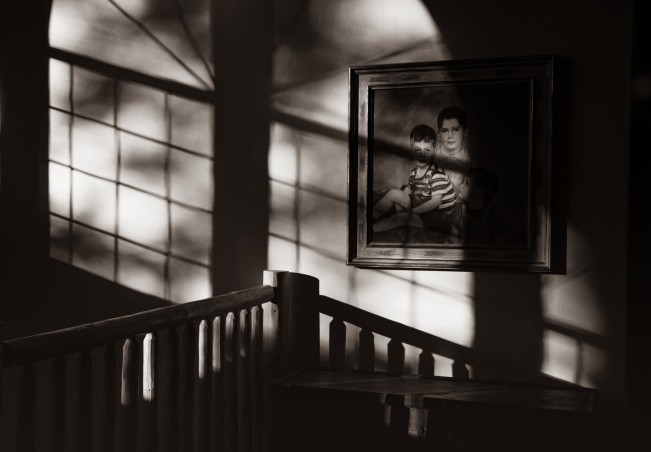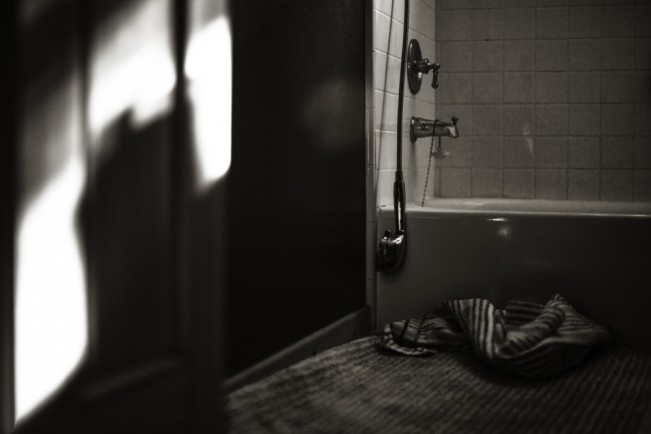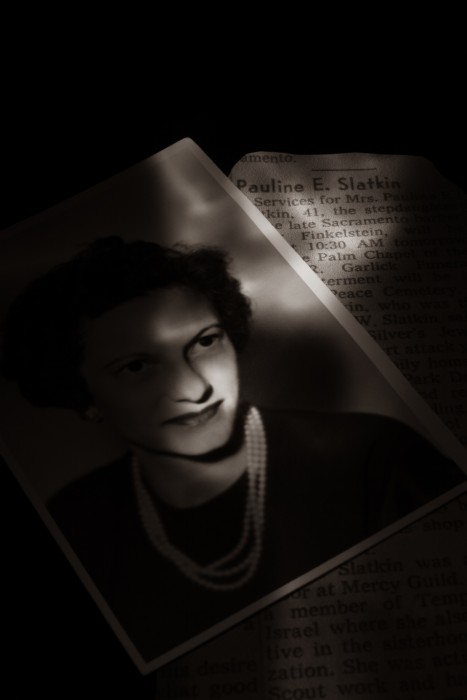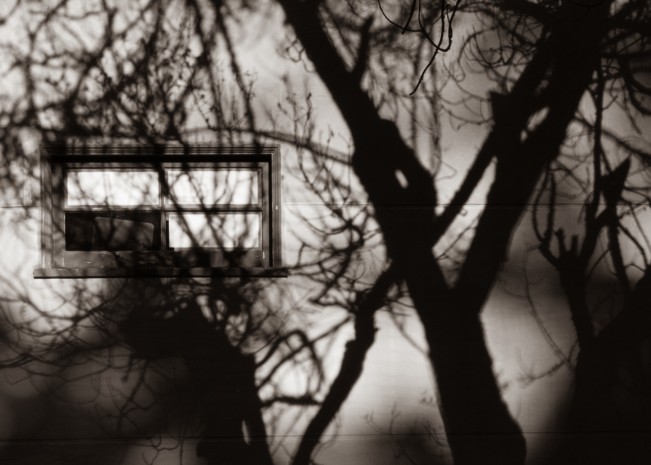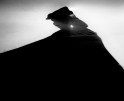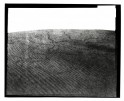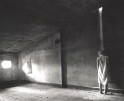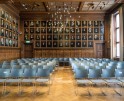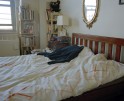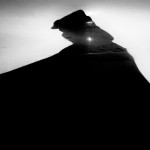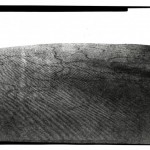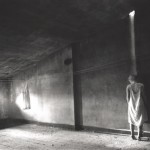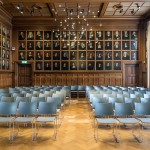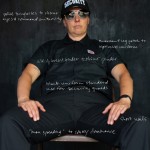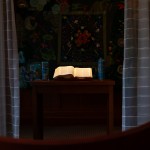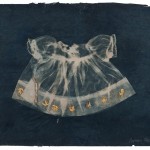Marsha Guggenheim: Without A Map
Marsha Guggenheim is a San Francisco fine art photographer and a 2021 Critical Mass finalist. Storytelling is a guiding influence in her work. Marsha is deeply interested in photographing people and draws on her diverse city to capture their stories. Complementing her street photography, Marsha spent years working as a photographer with formerly homeless women. This work results in the monograph, “Facing Forward,” highlighting these hard-working, proud women through portraits and stories of their life experiences.
Currently, Marsha is working on a personal series, “Without a Map.” Using family photos, creating pictures from her memories and even turning the camera on herself, she has found the means to evoke, reinterpret and address unanswered questions that were buried long ago. Marsha’ work has been shown in over 50 galleries and exhibitions. She has been published in both domestic and international publications and is included in numerous private collections. In March 2023, Marsha will have a solo exhibition of “Without a Map” at the Griffin Museum.
Follow Marsha Guggenheim on Istagram: @marshagugg
Without a Map
How does one move through life with the scars of the past? When I was ten, my mother died unexpectedly from a heart attack. I couldn’t understand where she went or when she would return. Just as I began to comprehend this loss, my father died. I was without support from my family and community. I was lost.
“Without a Map” reimagines this time that’s deeply rooted in my memories. Visiting my childhood home, synagogue and family plot provided an entry into this personal retelling. Working with family photos, creating new images from my past and turning the camera on myself, I found the means to evoke, reinterpret and address unanswered questions from early imprints that were buried long ago.
Judy: Marsha! Thanks so much for agreeing to do this interview! I think the people that read this are going to really enjoy hearing from you and about your project, “Without a Map.” If you could start out telling us a bit about your life growing up and how you came to photography?
Marsha: Okay! I was born in Stockton, California. It was a great place to grow up with good schools and a close knit Jewish community. I lived there with my parents and two sisters for ten years and then we moved to Sacramento. Tragically, after moving, my mother died unexpectedly and then my father passed away seven years later.
It was just me and my sisters, so I started working at a young age and I’ve been working ever since. I put myself through college—going to school at night and worked during the day for the University of California, San Francisco setting up and managing an Immunogenetics and Transplantation Laboratory. It was a fascinating lab where we determined compatible donors for transplants; I even established a paternity testing lab.
I did a lot of nonprofit work and graduated from the University of San Francisco in Nonprofit Administration. My interest was working with organizations that support the community. I started a program, the Jewish Healing Center, that provided spiritual healing for people who were living with illness or who were bereaved. Starting up the healing center was a very different program for Judaism, and ours was the first one in the United States.
Judy: When was that?
Marsha: Probably 25years ago. It took off and it is still serving the Bay Area community today. Finding that work satisfying, I then created a program of over 100 volunteers called The Caring Community under the umbrella of my San Francisco synagogue. This program supported the clergy with congregants who were ill, homebound or bereaved.
Four years later, I decided to move on and follow a new interest, art. I took a tour of the National Gallery in D.C., and it was evident, I wanted to do something in the art world. I love museums. They are places that bring me joy, creativity and always feel like my safe space. My interest is portraiture. I find myself focusing on the clothing, props and background in each picture to make up “my story” of that person and their history.
Art history became my new passion and I applied for the graduate program at SFSU in Art History. The program was fascinating, and I loved every part of it until I got to the studio classes. I must have not read the curriculum carefully but the thought of taking hands on art classes was daunting. I didn’t have a choice, so I started taking studio classes at SF City College and and met wonderful teachers and an inspiring community of artists.
Judy: Who were some of your teachers there?
Marsha: Stephanie Williams and many others! Stephanie was my first photography teacher at city college.. Now, when I see her at shows, she says, “WOW, Marsha! I taught you how to use a camera!”
Judy: So then, why photography?
Marsha: I chose photography because I could take my camera anywhere and I do. One day, I saw a newspaper article highlighting a woman, Keri Vaca, who was making portraits of pregnant women at a homeless center in SF and I thought, “I’m going to do that.” I contacted Keri and asked her to coffee to hear about this work. She introduced me to the Homeless Prenatal Program (HPP) and its Executive Director, Martha Ryan. She said to me, “We want you here HPP, we will give you whatever you need.” I felt at home and decided to make portraits of these HPP women to highlight their hard work and success. It took four years to finish that project. We had a huge show. Mayor Willie Brown attended, it was on the front page of the San Francisco Chronicle and a book of the images including the women’s stories. All the women I photographed attended the opening. They were so proud of their portraits and of their success. I love those women and I am indebted to them for so many reasons.
I shot a couple of other interesting projects, but “Without a Map” has really pushed me photographically and emotionally.
Judy: It seems to me there are times when we’re external facing and then, as we get older and more accomplished in our work, we become more introspective— at least some of us as—as we age. I find that my work is turning more inward. I still do externally facing work but there’s an inward quality to it now. I’m wondering if you have had that same experience?
Marsha: I think that’s true, Judy. For me, the trauma of my childhood has followed me my entire life and definitely made life harder. I was 10 when my mom died and my sisters were eight and three. My dad was not really fit to be working and to be a dad. We had various nannies that weren’t competent and a stepmother who was very difficult.
By the time I started photography, I had completed a lot of my career work and was able to focus on making pictures. “Without a Map” is a personal project about the loss of my mom—about the huge disruption in my life after she died. I hoped by making pictures about my childhood, instead of talking about it, would be the way to deal with my childhood trauma. It is helping me. By working on the story through photography using old family photographs, contacting people that I knew as a young girl, visiting the cemetery where my parents are and talking with my sisters helps me remember the good and difficult parts of my childhood. I also started making self-portraits—trying to capture parts of me from the past and the present.
Judy: That’s amazing. You know, there is so much research on trauma now, finally, that shows that if a child does not feel seen and heard by their caregivers—emotionally abandoned—it can be traumatizing in a way that mimics physical trauma and/or abuse.
Marsha: Yes. Absolutely.
Judy: Thank you for sharing that.
Judy: When did you begin “Without A Map?”
Marsha: Five years ago. It’s been it’s been a lot of work and there have been times when I’ve thought that I can’t do it anymore and times when I think it’s the most wonderful opportunity and experience ever. I have also been able to learn a different way to photograph! I’ve been working mainly at my studio at home learning more about how to use light in different ways and how to focus the images to recreate my memories. I make the images entirely in-camera, only using Photoshop to make traditional darkroom edits and add a bit of color. I’m still learning every day.
Judy: That’s pretty incredible. And you know—it’s interesting. I remember some of your other work and you used shutter speed, and it was very color driven, but so different from this work. You’ve always been experimental with the technical side of the camera, and I appreciate that your work is done in-camera versus post processing because of my formal background as a photojournalist. We are expected to do everything in camera.
Judy: So, you started this five years ago. How many images do you have now that you feel that are where you want to be with them? 15? More? Less?
Marsha: Oh no. I have about 100 images, at least, that I like, but haven’t made the final cut.
Judy: Are you working with mentors and/or photo editors to help you create and select your images?
Marsha: I have had great teachers/mentors over the years, but three who have been instrumental for this body of work are Mary Daniel Hobson, Susan Burnstine and Susan Kae Grant. Each has brought their unique talents to this project and my work would not be the same without their support. Ultimately, I’m looking forward to seeing this project as a book.
Judy: Your story—it’s fascinating. And it’s one of success, but one that came with a cost. It seems that through this work, you are really finding your confidence and your voice in photography.
Marsha: I think I am finding my own voice. I realize that I want this project to be universal where others can find an emotional connection to their own story. For example, I would hope that someone looking at one of my pictures, say a recipe card, might think, “Oh I remember my mom had all those recipe cards; I miss her and maybe I can find them.” Or, that the recipe cards would remind them of how they Ioved their mother’s brisket recipe and even if they no longer have it, they might recreate one to have that smell and taste they remember from years ago
Judy: Right, and there’s your personal experience connected to the work which is why it takes such courage to show emotional work to people who weren’t there or who don’t have that connection because you can’t control people’s reactions to your work. You just have to put it out there and let it be. I think that’s what’s so important about working with mentors, photo editors and/or visually literate people who you trust who can say, “I’m not getting it,” and you can receive that feedback and work through it in an emotionally safe way.
Marsha: Absolutely, their feedback was invaluable, and I feel they motivated me to think out of the box.
Judy: Who are some of the photographers that stand out in your mind, whose work really inspires you?
Marsha: Of utmost importance is Robert Frank. I could look at his book The Americans for days and days. His worked has influenced all my photography and even today, with this new series, I see his influence in my work.
Judy: The Americans presents a universal visual language that you’ve been talking about doing through your project, “Without a Map.”
Marsha: That’s what I want.
Judy: What about your title? How did you conceive of it?
Marsha: I have felt lost most of my life. I didn’t have a “map” so to speak to help me find my way as a child. At 10 -years-old, what do we know about death – where did that dead person go? Will that person come back? That map wasn’t there for me for decades and yet, somehow, I found my way.
Judy: Wow are you going to know when you’re done?
Marsha: I think I am close to whatever completion looks like. It’s time to move onto something new and I have an exciting idea brewing.
Judy: A good friend of mine, David Leeson, used to say, “There’s no documentary film I’ve ever made that I finished. I just abandoned it.” And I totally relate. I could just keep tweaking and shifting and iterating… and at some point, you just need to get the work out there.
Marsha: Yeah. Mary Daniel Hobson has really been pushing me to stop being a perfectionist.
Judy: If you had one piece of advice that you would give yourself, let’s say when you were just starting off in the art history program at San Francisco State or at City College—what’s one piece of advice that you would share?
Marsha: Immerse yourself in what you love. WORK HARD! Don’t take no for an answer and do find a supportive teacher you trust and admire.
Judy: Certainly, words to live by. Thank you so much for your time, Marsha!
Marsha: Thank you so much!
Posts on Lenscratch may not be reproduced without the permission of the Lenscratch staff and the photographer.
Recommended
-
Jonathan Silbert: InsightsFebruary 19th, 2026
-
Olga Fried: Intangible EncountersFebruary 18th, 2026
-
Anne McDonald: Self-PortraitsFebruary 17th, 2026
-
Review Santa Fe: Leslee Broersma: Tracing AcademiaFebruary 11th, 2026
-
Review Santa Fe: Ilana Grollman: Just Know That I Love YouFebruary 10th, 2026

